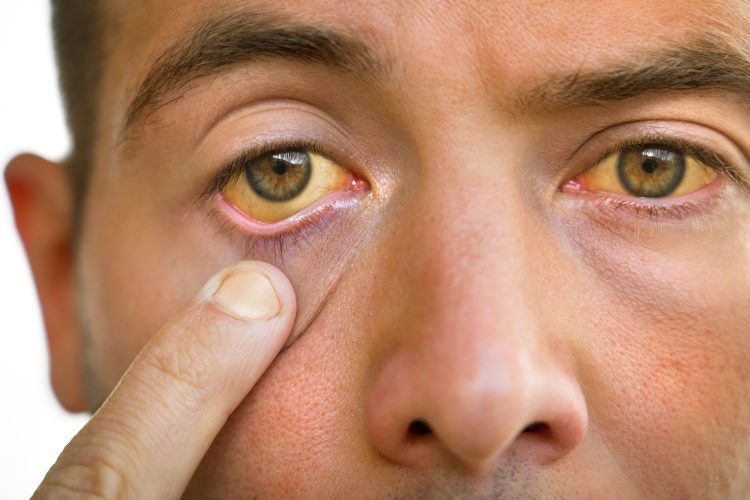
Every year, nearly 72,000 people worldwide experience acute liver failure. If you didn’t know, the liver is essential to the human body’s detoxification, metabolic, and immune system functions. In short: without a working liver, a person cannot survive. So, you should really keep an eye on the organ – here are the most prominent signs of liver failure.
Loss Of Appetite

While roughly 16,500 Americans experience liver failure each year, nearly 4.5 million Americans have some sort of liver disease. So, knowing the signs of liver failure can help not only save your life, but the lives of others. The first sign of liver failure is a loss of appetite. “The liver plays a key role in the digestive system, and, when the liver isn’t working as well as it should be, it can cause digestive problems, leading to nausea and a disinterest in food,” says Courtney D’Angelo, MS, RD, and an author at the blog Fit Healthy Momma.
Gallbladder Issues And Jaundice

We get it: everyone experiences a loss of appetite every so often. As such, it’s an easy sign to miss. However, if you’re experiencing both a loss of appetite as well as gallbladder issues and jaundice, it’s likely time to talk to your doctor. “When the liver is chronically congested, sediment often settles out of the bile and accumulates in clumps that resemble stones or sand in the gallbladder. As a result, the gallbladder can become clogged as well,” says Lam.
How can you tell if you’re having gallbladder issues? Yellow eyes! A pigment called bilirubin builds up in the human blood when gallbladder issues arise, causing yellow to appear in the eyes. While healthy liver gets rid of bilirubin in time, a sick one doesn’t. That’s not the only discoloration that can arise when your liver is not working…
Discolored Skin And Bleeding

Just like the eyes, discoloration, bleeding, and oddly texturization of the skin can also occur when the liver stops working. “Dry, pale, and mottled skin with dark spots and pigmentation are signs of an underlying sluggish liver,” Lam explained. As for bleeding, the liver tens to cycle roughly 25% of blood from the portal vein. As you might have guessed, a failing liver cannot do that, which results in more bleeding in the system. So, if you see blood in your urine and stool, or bleeding gums and excessive nosebleeds, it’s time to visit the doctor. If you face a tremendous amount of bleeding, skip the doctor’s appointment and head to the emergency room or urgent care.
Confusion

Are you experiencing severe impairments to brain functions like memory and cognitive thinking? Oncoming live failure might be to blame! “Impaired cognitive ability and tremor can occur. In a severe case, accumulation of toxins can cause cerebral edema, or fluid gathering in the brain,” says general practitioner David Beatty, MRCGP, MBBS, DRCOG. Thankfully, this condition is possible to treat with laxative lactulose. Of course, talk to your doctor before taking any medication, even over-the-counter medicines.
The best way to stop oncoming liver failure? Take better care of your liver! Drink less alcohol, drink more water, work out at least three times a week, and enjoy a healthy diet.
Sources: Cleveland Clinic, MSN.
